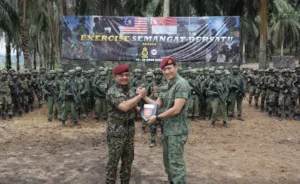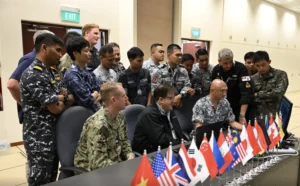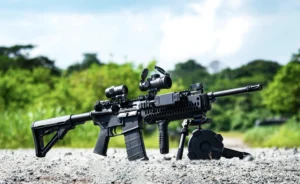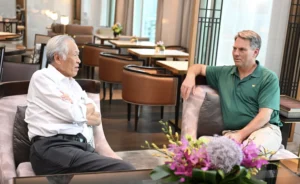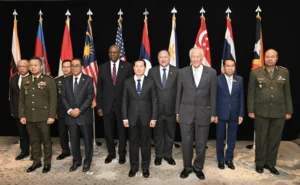DEFENCE POLICY & DIPLOMACY
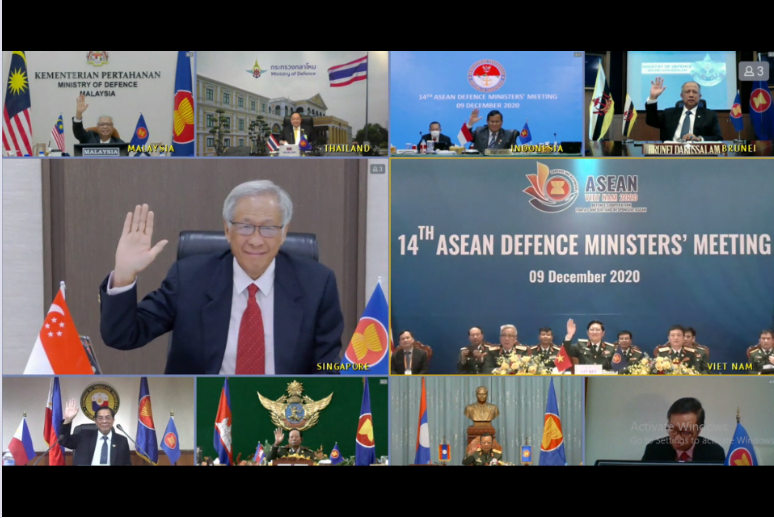
Singapore’s approach to defence is shaped by both the unique circumstances surrounding our country’s independence and the enduring geostrategic limitations we face. As a small state, Singapore lacks the resources and other natural advantages that bigger states enjoy. With an open and globalised economy, our survival and development are greatly dependent on a peaceful and stable regional environment. Given our strategic circumstances, a strong defence is necessary to ensure that we enjoy peace and stability, and that our sovereignty and territorial integrity are protected. A strong defence also provide us with the political space and the freedom to act in our best interests.
Deterrence and Diplomacy
Singapore’s defence policy is fundamentally based on the twin pillars of deterrence and diplomacy. The first pillar of deterrence is provided by developing a strong and capable SAF and a resilient Singapore, through the institutions of National Service and Total Defence, as well as by taking a prudent and stable approach to defence spending.
The second pillar of defence diplomacy is built by establishing strong and friendly ties, through extensive interactions and cooperation, with defence establishments and armed forces in the region and around the world. We also play our part as a responsible member of the international community in helping to uphold and shape a regional and international system in which all countries abide by international rules and norms. Singapore keenly understands that small states can survive and thrive only in a world where sovereignty is respected and where interactions between states are governed by the rule of law.
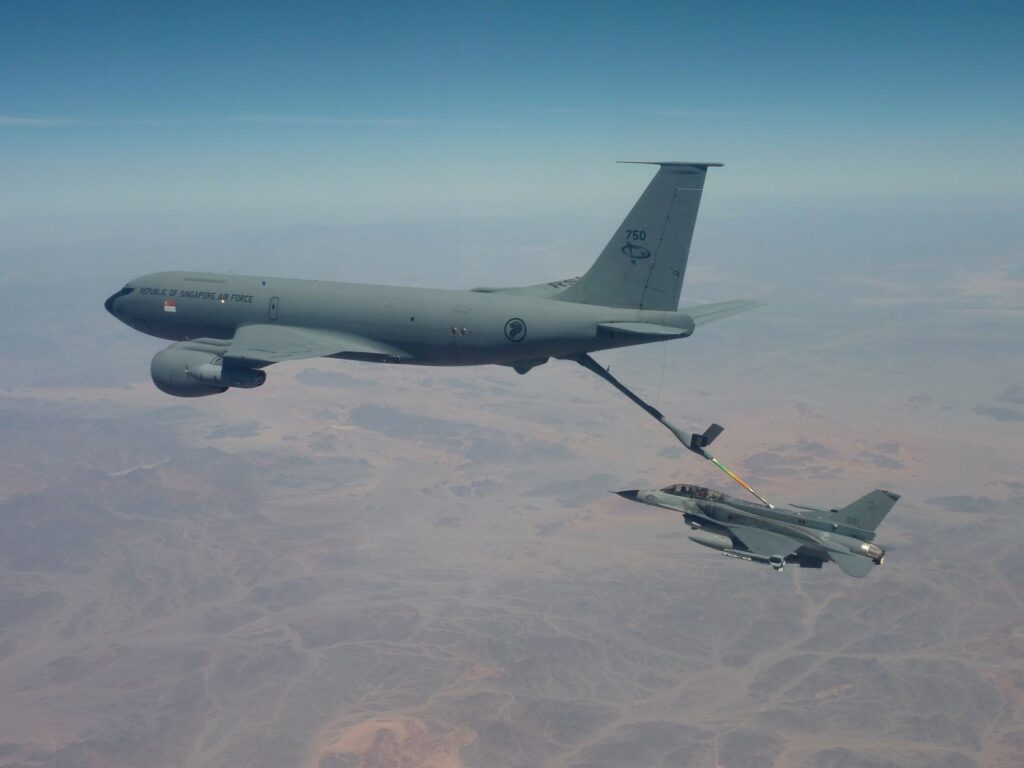
Strengthening Bilateral Defence Relations
We have sought to build a strong network of bilateral relationships within our region and around the world. The SAF enjoys significant interactions with other militaries, which range from exchanges of visits and joint exercises to attendance of each other’s courses. This diverse network of defence relationships contributes to regional and international security by fostering understanding, building confidence, and facilitating practical cooperation between militaries to tackle common security challenges. It also allows the SAF to learn and acquire best practices from counterparts all over the world, as well as to benefit from access to overseas training areas and defence technology cooperation.
Building an Open, Inclusive, and Flexible Regional Security Architecture
We have sought to build a robust, open and inclusive regional security architecture that encourages countries to engage constructively in dialogue, and ensures that all the stakeholders have a voice and a seat at the table. At the same time, we would like the region to go beyond dialogue to forge practical cooperation to address common security challenges.
Singapore has thus worked closely with our ASEAN neighbours within the framework of the ASEAN Defence Ministers’ Meeting (ADMM), established in 2006. The ADMM-Plus, which was established in 2010 and brings together the defence establishments of the 10 ASEAN member states and eight other key players in the region (namely Australia, China, India, Japan, New Zealand, Republic of Korea, Russia and the United States), provides another platform for enhancing defence cooperation through sharing of experiences and exchanges of visits, as well as joint training and exercises.
Singapore has also hosted the annual Shangri-La Dialogue (SLD), organised by the International Institute of Strategic Studies, since 2002. The SLD brings together defence ministers, senior officials, strategic thinkers and other key players from the Asia-Pacific and beyond for dialogue in an informal setting. It facilitates the shaping of regional norms and promotes cooperation.
Contributing to International Security Efforts
Singapore takes our international responsibilities and commitments seriously. We seek to contribute, within our means and in useful ways, towards multinational efforts to maintain international security. As we have limited resources and manpower, we seek to focus our contributions in niche areas where the SAF has expertise and which our international partners find operationally useful. Given the common threat posed by transnational security challenges, Singapore’s participation in such efforts also helps to enhance our own security.
